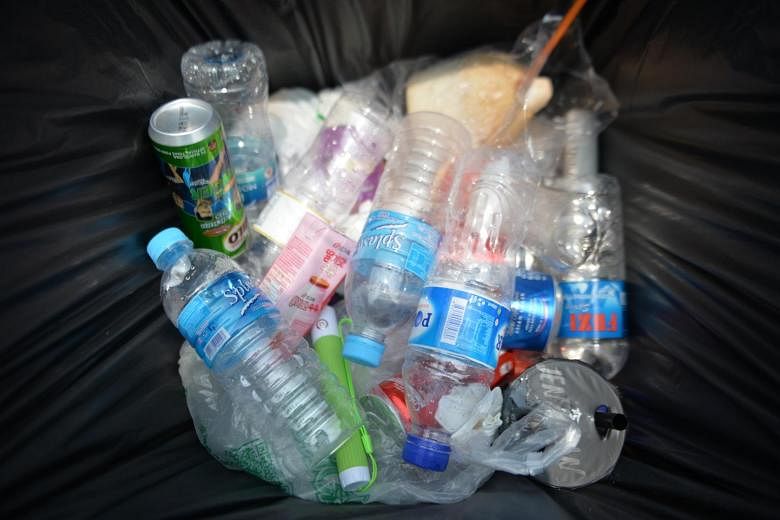With collective effort, positive action and political will, we can extend the lifespan of the landfill on Semakau Island by reducing the 1.76 billion plastic items people in Singapore use each year (Only 7% of Singapore's plastic for recycling is processed here, Oct 11).
According to the Singapore Environment Council (SEC), people in Singapore use 820 million plastic bags from supermarkets each year. We should focus on this first.
A cursory search for biodegradable products sold on Chinese websites such as Alibaba should produce enough results to convince the National Environment Agency (NEA) and the SEC that it is time for the supermarket industry to begin switching to biodegradable alternatives. Chinese manufacturers are now producing millions of biodegradable products. It is time for consumer markets to use environmentally friendly materials.
With biodegradable plastic bags now readily available at very low cost, the authorities need to get the industry to make the transition.
Each biodegradable plastic bag costs about 1 US cent (1.35 Singapore cents); even if supermarket customers are given, on average, three bags a visit, the cost would hardly make a dent in the supermarkets' profits.
We can also look at gradually reducing the use of takeaway containers, which make up part of the 473 million plastic disposable items used in Singapore each year.
Takeaway containers from China are made with bagasse (sugar-cane fibre residue) or corn starch, and have been tested and certified as biodegradable and compostable.
They are non-toxic, able to withstand heat of up to 120 deg C without leakage and are microwave-and freezer-safe.
Such containers are listed for sale at less than 5 US cents each from Chinese factories.
I see no reason why the food industry cannot replace styrofoam containers and other non-biodegradable products with biodegradable alternatives.
And to deal with plastic bottles and other forms of used plastic, the NEA should incentivise local and foreign recycling plants to invest in methods to turn used plastic into construction material or fuel.
Paul Chan Poh Hoi

